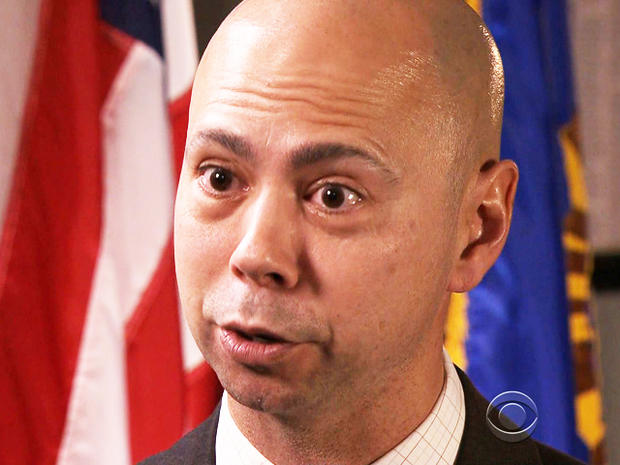Heading off a gunman before he makes headlines
QUANTICO, Va. -- Andre Simons runs an FBI unit charged with stopping mass shootings before they happen. Three times a week, Simons and the Behavioral Threat Assessment Center confront a case dealing with a potential shooter, identified through tips from churches, police, campus security and businesses.
Simons explains what kind of red flags he looks for when he is looking at an individual.
"What we look at is, is there a fascination with previous attacks? Is there an overwhelming sense of a downward spiral?" said Simons.
Often in mass shootings as in the attacks at the Colorado movie theater and the Washington Navy Yard, gunmen reveal warning signs to co-workers, neighbors or classmates.
Simons says when the FBI learns of someone exhibiting threatening behavior, analysts work to re-direct the subject from violence to mental health treatment, monitoring or custody.
The FBI team researches the subject's background and often interviews the person and acquaintances.
In the past year, his behavioral team has tackled 150 cases. Not one resulted in violence.
"While prosecution remains at the FBI one of our priorities, we really think prevention is even better," said Simons.
Still, the challenge is growing. Friday's gunfire at a Colorado high school is the latest reminder.
"These active shooters, so we're doing everything we can to unite mental health resources with law enforcement," said Simons.
In one case, the FBI interviewed a man who had a shooting range in the basement of his home where he also used pictures of his roommates as targets. CBS News is told the man abused animals and collected firearms, but once he was contacted by the FBI team, he sought mental health treatment.
